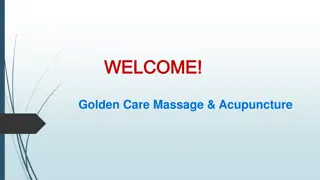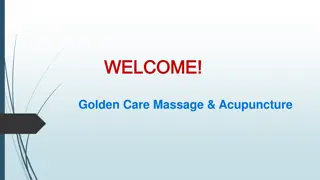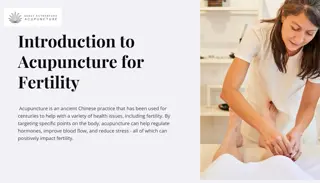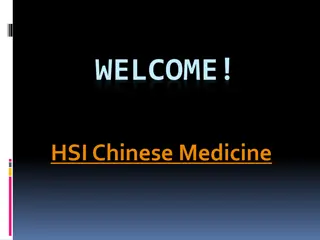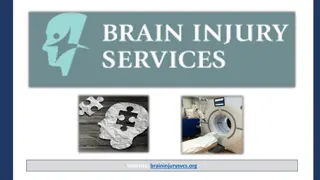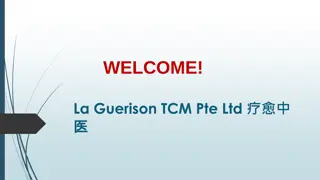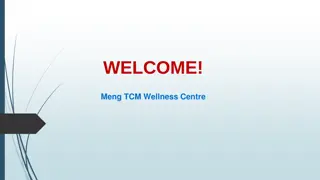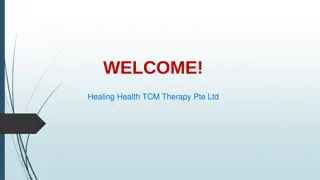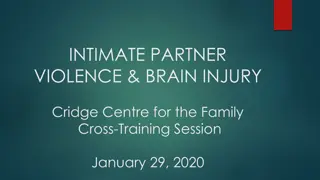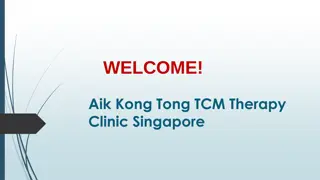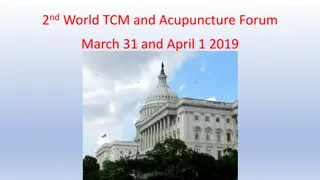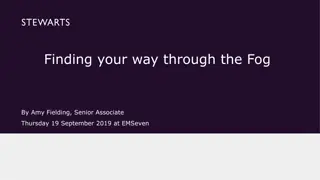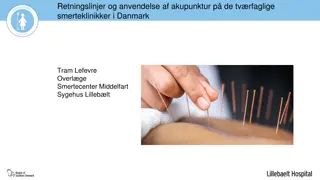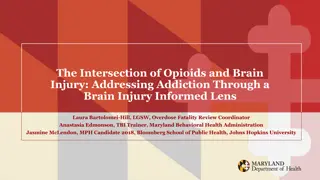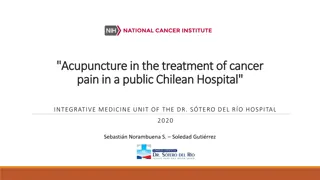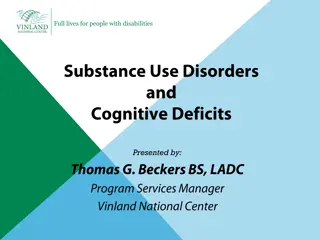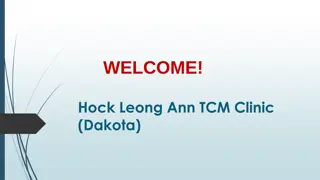Acupuncture After Brain Injury - Presentation by Mark D. Sodders, DAOM
Explore the benefits of acupuncture after brain injury as presented by Mark D. Sodders, DAOM, through this informative session. Learn about the effects of acupuncture on inflammation, scarring, synaptic plasticity, cerebral glucose metabolism, and neural cell proliferation. Understand the history, terminology, and assessment of acupuncture, and find out what to expect during an acupuncture visit. Remember, always consult with a qualified healthcare provider before opting for acupuncture.
Download Presentation

Please find below an Image/Link to download the presentation.
The content on the website is provided AS IS for your information and personal use only. It may not be sold, licensed, or shared on other websites without obtaining consent from the author. Download presentation by click this link. If you encounter any issues during the download, it is possible that the publisher has removed the file from their server.
E N D
Presentation Transcript
ACUPUNCTURE AFTER BRAIN INJURY BRAIN INJURY ALLIANCE OF WASHINGTON PRESENTATION April 14, 2021 Mark D. Sodders, DAOM
Notices The information in this presentation is for informational purposes only and does not constitute medical advice. The decision to have or not have acupuncture should be made by you and your healthcare provider. Only seek acupuncture from a qualified and appropriately licensed health care professional. The content in this presentation does not necessarily represent the official views of the National Institutes of Health, the University of Washington, the Harborview Injury Prevention and Research Center, or the Brain Injury Alliance of Washington.
Introduction ABOUT ACUPUNCTURE FINDING A PRACTITIONER WHAT TO EXPECT FROM AN ACUPUNCTURE VISIT
Acupuncture 1.Inflammation 2.Scarring 3.Synaptic plasticity 4.Cerebral glucose metabolism 5.Neural cell proliferation and differentiation 1.Stimulates blood levels and oxygen levels in the brain 2.Targets brain networks
What is Acupuncture? The insertion of needles into the living tissue for remedial purposes. (Websters 1913) Procedure Process
History of Acupuncture (1766 1123 BCE) (1122 256 BCE) (255 207 BCE) (206 BCE 221 AD) Sh ng Dynasty Zh u Dynasty Q n Dynasty H n Dynasty
The Acupuncture Needle Smooth Blunt tip Flexible Designed to part Does not inject or remove anything
Acupuncture Terminology When was your last holiday?
Now, how should we translate? Q Form and Function
Assessment Qualities of nature Wind Heat/Fire Dampness Dryness Cold All organs have a near and far function Acupuncture channels All organs are related
Important Points About Acupuncture Disease/Condition and Pattern Differentiation One disease/condition, many patterns One pattern, many diseases/conditions
What to expect from a visit Community style acupuncture Private treatment rooms
What to expect from a visit Paperwork Insurance Past medical history Current symptoms Vital signs
What to expect from a visit Questioning may not seem directly related to your complaint Pain Sleep Sweat Temperature Thirst Appetite Urine Bowel movements Energy
What to expect from a visit The pulse The tongue
What to expect from a visit The actual treatment Appropriate chair or table Points may be swabbed Needles placed Retained Needles removed
Locating an acupuncturist WEAMA.org NCCAOM.org CCAOM.org doh.wa.gov State National Certification Commission acupuncture association Bastyr University School clinics Seattle Institute of East Asian Medicine Health Department
Questions? msodders@uw.edu


